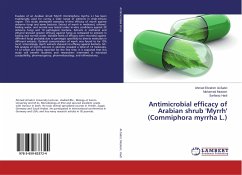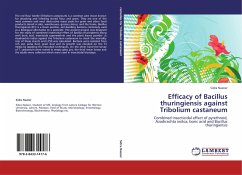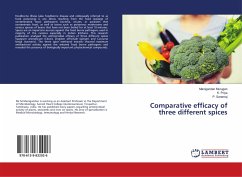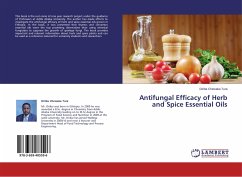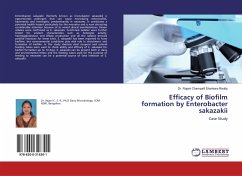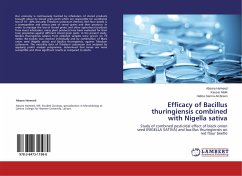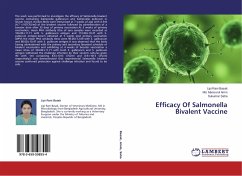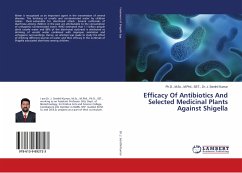Exudate of an Arabian shrub 'Myrrh' (Commiphora myrrha L.) has been traditionally used for curing a wide range of ailments in Arab-African region. This study attempted assessing in-vitro efficacy of myrrh against airborne fungi and some bacteria. Extract of myrrh in methanol, ethanol, boiling water, and normal was tested under in-vitro conditions against 20 airborne fungi and 10 pathogenic bacteria. Extracts in methanol and ethanol showed greater efficacy against fungi as compared to extracts in boiling and normal water. Variable levels of efficacy were recorded against different fungi probably due to genotypic specificity to diverse molecules in different extracts. Optimal concentration of myrrh was found to be 15% (w/v). Interestingly, myrrh extracts showed no efficacy against bacteria. GC-MS analysis of myrrh extracts in alcohols revealed a total of 14 molecules, 11 of which are being reported for the first time. It is expected that this study will benefit students and researchers interested in microbial susceptibility, pharmacognocy, pharmrobacology, and ethinobotany.

